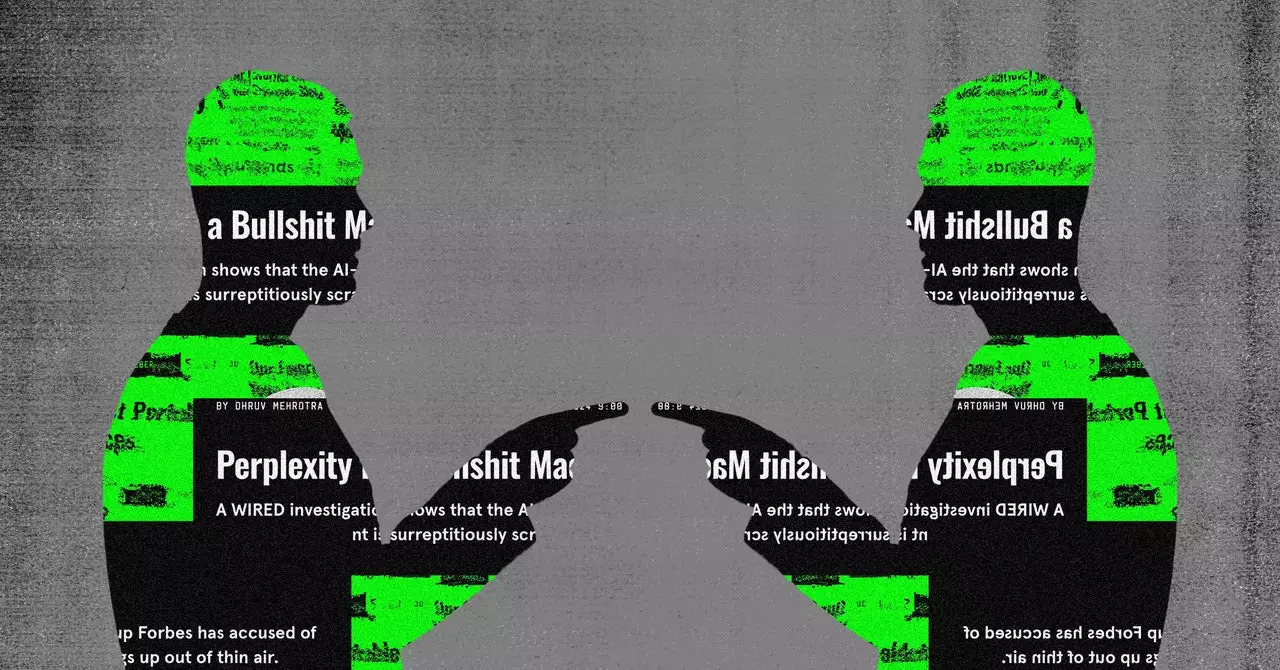When it comes to summarizing stories, especially with the use of AI chatbots like Perplexity, there is a fine line that needs to be carefully navigated. The risk of facing legal trouble arises when the summary of a story is incorrect and defamatory, thereby tarnishing the reputation of the original source. Legal expert Grimmelmann highlights the importance of ensuring that summaries are accurate and do not lead to any defamatory claims. The failure to credit the original source adequately can also pose legal risks, as it may prevent people from verifying the information provided in the summary.
In a specific case observed by WIRED, Perplexity’s chatbot made a false claim while linking prominently to the original source. The chatbot falsely stated that WIRED had reported a crime committed by a police officer in California. Despite acknowledging that the answers generated by the chatbot may not always be accurate, Perplexity aims to enhance accuracy and user experience continually. This raises questions about the responsibility of AI chatbots in ensuring the reliability of the information they disseminate.
Expert Perspectives on Copyright Infringement
Legal experts have varying opinions on the issue of copyright infringement related to AI-generated summaries. While some, like Pam Samuelson, emphasize the impact of unauthorized use on the original author’s ability to receive appropriate compensation, others, like Bhamati Viswanathan, question whether a single verbatim sentence constitutes infringement. The debate reveals a need for a reevaluation of copyright laws to address the challenges posed by AI technology and its implications for intellectual property rights.
Viswanathan argues that focusing solely on technical aspects of copyright claims may not be sufficient to address the broader implications of AI technology on creative industries. She proposes the development of a new legal framework that aligns with the evolving nature of creativity and technology. By considering the potential for market distortions and the need to promote original creative work, she underscores the importance of ensuring that creators can benefit financially from their contributions. This necessitates a proactive approach to safeguarding the integrity of creative ecosystems amidst the growing influence of AI technology.
The intersection of AI chatbots, copyright infringement, and legal risks highlights the complex challenges faced by the legal system in adapting to technological advancements. As AI continues to reshape the landscape of information sharing and creative expression, it is crucial to explore innovative solutions that balance the interests of creators, users, and technology developers. By critically analyzing the implications of AI technology on intellectual property rights, we can strive to create a legal framework that fosters innovation, protects original content, and upholds the principles of creativity in the digital age.


Leave a Reply